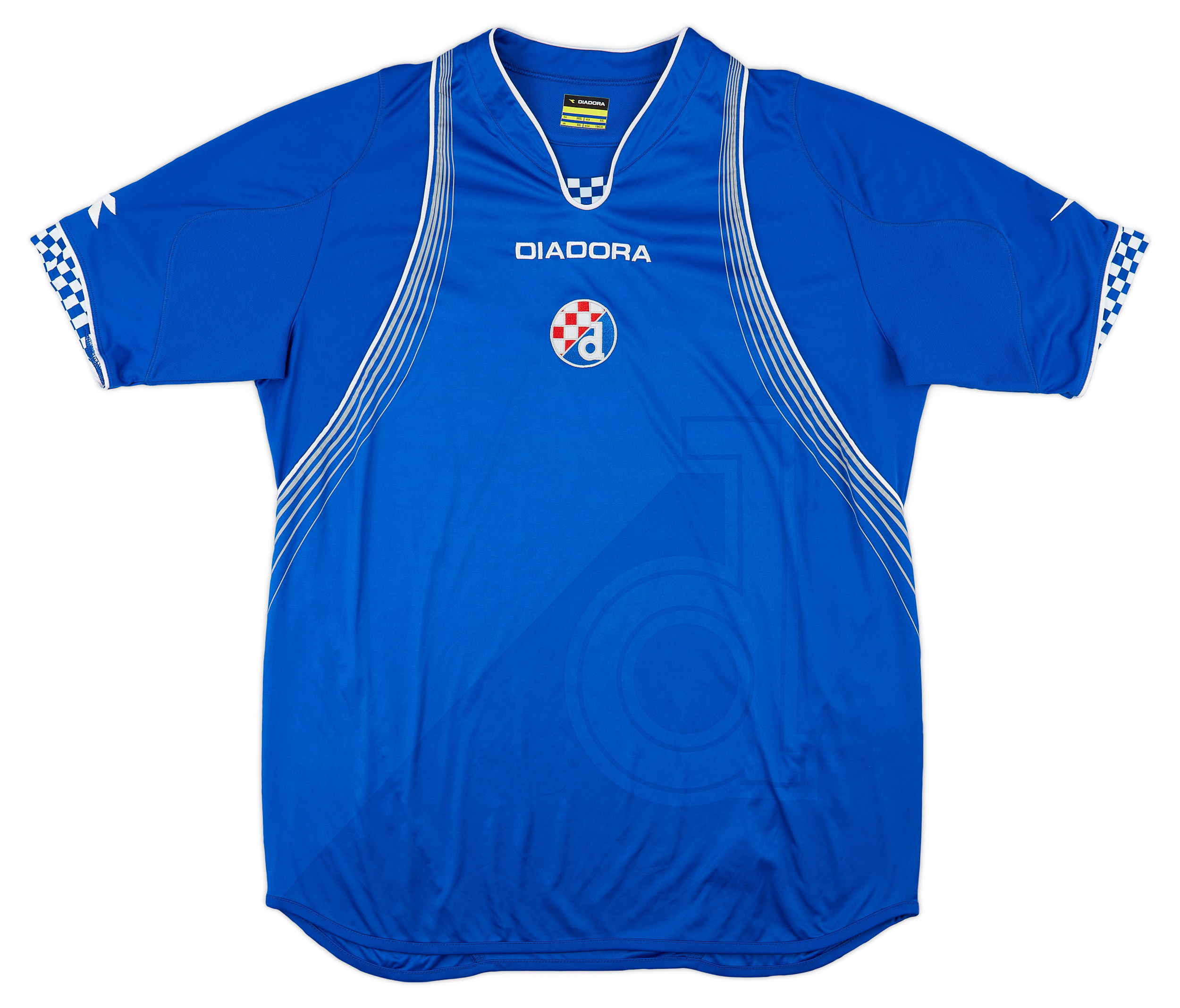Dinamo Zagreb
Introduction Dinamo Zagreb stands as a beacon of Croatian football, embodying the passion and spirit of the nation. Founded in 1945, this dynamic club has carved a unique identity in the world of sports, signaling its prominence not only in Croatian football but also on the European stage. The club’s blue colors and emblematic lion […]
2007-08 Dinamo Zagreb Home L/S Shirt - 9/10 - (M)
106.99£ - ca: €126
2007-08 NK Dinamo Zagreb Home Shirt - 8/10 - (L)
94.99£ - ca: €112
2007-09 Dinamo Zagreb Away Shirt - 8/10 - (L)
94.99£ - ca: €112
2007-08 Dinamo Zagreb Home Shirt - 8/10 - (XXL)
94.99£ - ca: €112
2007-08 NK Dinamo Zagreb Home Shirt - 8/10 - (L)
94.99£ - ca: €112
2007-09 Dinamo Zagreb Away Shirt - 9/10 - (L)
94.99£ - ca: €112
2007-08 NK Dinamo Zagreb Home Shirt - 8/10 - (L)
94.99£ - ca: €112
2009-10 Dinamo Zagreb Away Shirt - 7/10 - (XL)
82.99£ - ca: €98
2007-08 NK Dinamo Zagreb Home Shirt - 7/10 - (S)
82.99£ - ca: €98
2007-08 Dinamo Zagreb Third Shirt - 8/10 - (L)
82.99£ - ca: €98
2010-11 Dinamo Zagreb European Home Shirt #22 - 9/10 - (M)
70.99£ - ca: €84
2012-13 Dinamo Zagreb Prototype Away L/S Shirt - 6/10 - (L)
58.99£ - ca: €70
2011-12 Dinamo Zagreb Third Shirt - 7/10 - (XL)
53.99£ - ca: €64
2011-12 Dinamo Zagreb Third Shirt - 7/10 - (XL)
53.99£ - ca: €64
2013-15 Dinamo Zagreb Home Shirt (XS)
47.99£ - ca: €57
2011-12 Dinamo Zagreb European Shirt (KIDS)
17.99£ - ca: €21
2012-14 Dinamo Zagreb Away L/S Shirt (KIDS)
17.99£ - ca: €21
Introduction
Dinamo Zagreb stands as a beacon of Croatian football, embodying the passion and spirit of the nation. Founded in 1945, this dynamic club has carved a unique identity in the world of sports, signaling its prominence not only in Croatian football but also on the European stage. The club’s blue colors and emblematic lion roar with the pride of a rich history, winning numerous titles while nurturing talent that has flourished both domestically and internationally.
Club History
The origins of Dinamo Zagreb trace back to the post-World War II era when the club was officially founded on April 26, 1945, as Croatia’s first national sports club. Initially named “FD Zagreb,” it later adopted the name “Dinamo,” reflecting the energy and ambition of the newly formed Yugoslav state. The early years were challenging, but the club thrived as it transitioned to a prominent name in Croatian sports, steadily building a competitive team that would dominate regional leagues.
One of the significant moments in Dinamo’s history occurred in the early 1990s, coinciding with Croatia’s struggle for independence. The club played a vital role in fostering national pride. The infamous match against Red Star Belgrade in 1990, marked by violence but also by a passionate display of patriotism, became etched in the annals of Croatian history. This pivotal clash not only deepened the rivalry between the two clubs but also transformed Dinamo into a symbol of Croatian identity.
Achievements
Dinamo Zagreb has a storied record of accomplishments both domestically and on the European front. The club has claimed the Croatian First Football League title over 20 times, showcasing its dominance in national competitions. Since the league’s establishment in 1992, Dinamo has consistently been at the top, winning titles in every decade.
In addition to domestic successes, Dinamo has made significant inroads in European competitions, notably the UEFA Champions League and the UEFA Europa League. The club’s best-run in the Champions League came during the 1960s and 1970s, where they made several quarter-final appearances. More recently, their memorable campaign in the 2019-2020 Europa League saw Dinamo reach the Round of 16, emphasizing their competitiveness on the European stage.
Significant Players and Matches
Dinamo Zagreb has been home to a plethora of exceptional players, many of whom have left indelible marks in the club’s history. Notable figures include Luka Modrić, who began his illustrious career at Dinamo. Modrić, a Ballon d’Or winner, showcased his talent in Zagreb before becoming a global superstar at clubs like Tottenham and Real Madrid. Other legendary players include Davor Šuker, the top scorer of the 1998 FIFA World Cup, and Eduardo da Silva, who brought flair and creativity to the pitch.
Some landmark matches have defined the club’s trajectory. The thrilling encounter against Manchester City in the 2022-2023 UEFA Champions League group stage culminated in a memorable home victory for Dinamo, showcasing their ability to compete against Europe’s elite teams. These matches create lasting memories, further solidifying the club’s reputation in football history.
Cultural Impact
The impact of Dinamo Zagreb extends beyond the pitch; the club serves as a cultural touchstone for supporters throughout the nation. The fanbase, known as “Bad Blue Boys,” is one of the most passionate and dedicated in Europe, creating an electric atmosphere during home matches at the Maksimir Stadium. The club’s supporters are not merely fans; they represent a community bound together by loyalty and pride in their team, embodying the essence of Croatian identity.
Dinamo’s influence is also felt in various social initiatives, promoting youth development through their academy, which is recognized for nurturing young talents who often become stars in both domestic and international football. This commitment to youth has etched Dinamo into the fabric of Croatian society, providing opportunities for young players to realize their dreams.
Conclusion
Dinamo Zagreb remains a cornerstone of Croatian football, symbolizing resilience, pride, and community. With a rich history marked by significant achievements, legendary players, and a fervent fanbase, the club has not only shaped the landscape of football in Croatia but has also established a legacy that resonates throughout Europe. As Dinamo continues to pursue success on the pitch, its role in fostering national identity and cultural unity will undoubtedly endure, making it a prominent player in the annals of football history.
















